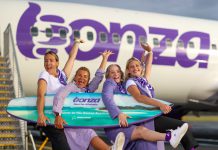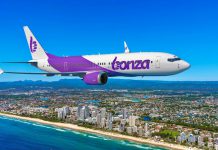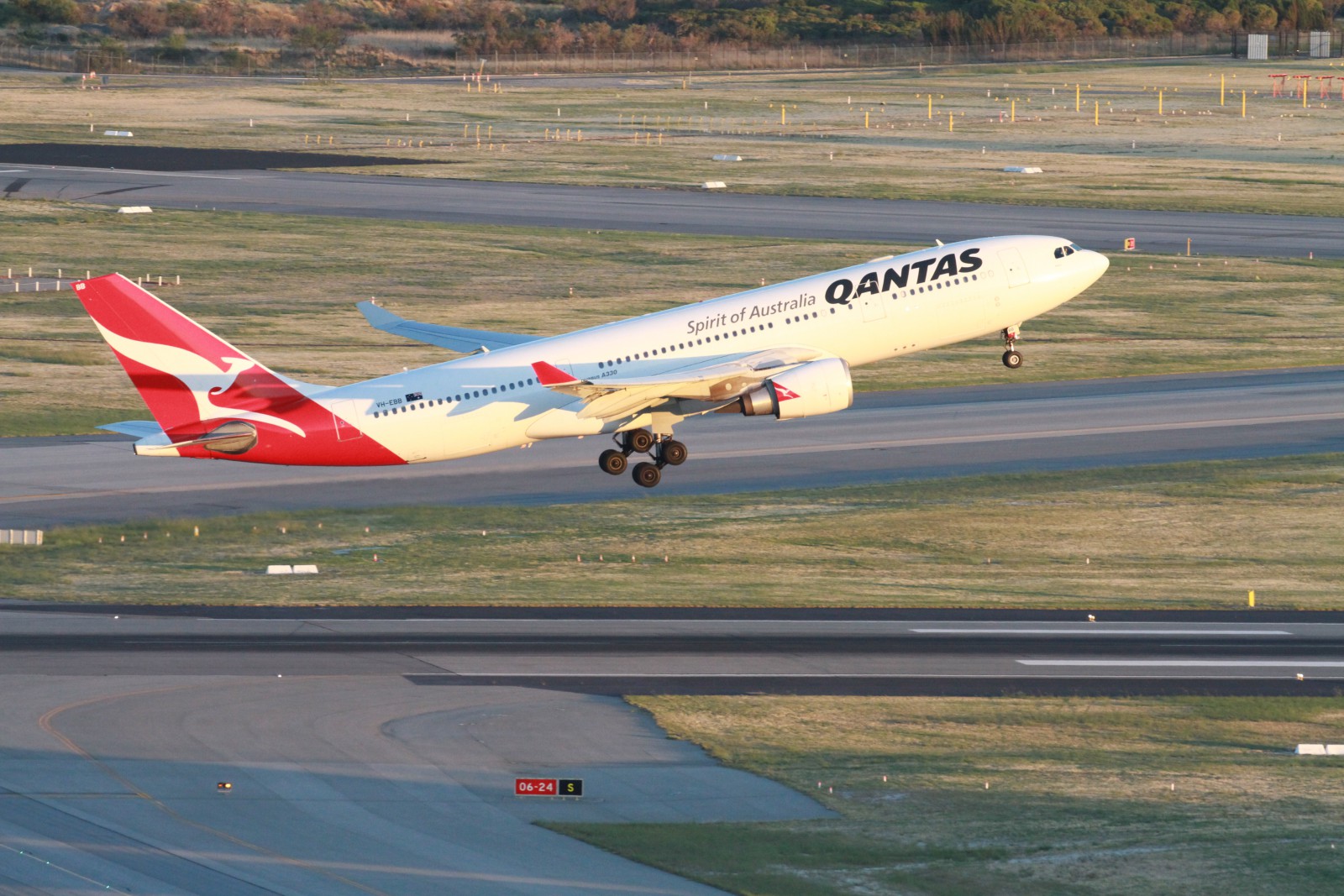Qantas remains upbeat despite posting an underlying loss of A$1.80 billion and a statutory loss before tax of A$1.19 billion.
This is the Qantas Group’s third consecutive Statutory Loss Before Tax of more than $1 billion, reflecting the Delta and Omicron impacts as well as upfront costs from restarting the airline as lockdowns finally ended.
For the full 2022 financial year, the Group experienced an Underlying Loss Before Tax of $(1.86) billion and a Statutory Loss Before Tax of $(1.19) billion. The difference between these two measures largely reflects the $686 million net gain on sale of surplus land, which helped reduce COVID-related debt.
The airline said that while the first three quarters of the year were defined by border closures and waves of uncertainty caused by COVID variants, the fourth quarter saw the highest sustained levels of travel demand since the start of the pandemic. Overall, the Group’s flying levels for the year averaged at 33 per cent of pre-pandemic levels but finished at 68 per cent.
Qantas said its Group Domestic operations were profitable at the Underlying EBIT level in 4Q22, while Qantas Freight posted another record annual performance and Qantas Loyalty accelerated its earnings growth to double digits in the second half.
The reopening of borders saw a huge increase in forward travel demand, which when combined with the Group’s recovery plan, has resulted in a significant improvement to the balance sheet.
Net debt has fallen from a high of more than $6.4 billion to $3.9 billion at the end of FY22, putting it below the optimal target range of $4.2 billion to $5.2 billion.
Qantas said that with the existential crisis posed by the pandemic now over, the Group is focused on responding to current operational challenges.
It claims that key customer measures for Qantas including contact centre wait times, cancellation rates and mishandled bag rates are trending back towards pre-COVID standards during August 2022.
Qantas said in a statement that there has been a significant improvement in on-time performance, which lifted from 52 per cent in July to 66 per cent for August (to date). It adds that this is expected to reach 75 per cent in September and around 80 per cent in October 2022, pending external factors such as extreme weather.
Qantas Group CEO Alan Joyce said: “This result takes the Statutory Loss Before Tax impact of COVID on the Qantas Group to nearly $7 billion and our total revenue losses to $25 billion. These figures are staggering and getting through to the other side has obviously been tough.
“The past year has been challenging for everyone. We had to ramp down almost all flying once Delta hit and stay that way for several months before ramping back up through multiple Omicron waves as we all learned to live with COVID in the community.
“We always knew travel demand would recover strongly but the speed and scale of that recovery has been exceptional. Our teams have done an amazing job through the restart and our customers have been extremely patient as the whole industry has dealt with sick leave and labour shortages in the past few months.
“Safety remains number one, but our service isn’t at the level expected of the national carrier. There is a lot of work happening to bring us back to our best, including hiring more people, rolling out new technology and reducing domestic flying so we have more sick leave cover.
“We saw a big improvement in baggage handling and cancellations in August, which we expect will return to pre-COVID standards next month. On-time performance also improved significantly and should be close to our usual high standard in September.
“We’re even more confident in the future than we were six months ago, so today we’re announcing more investment in our people and our customers, including a major boost to staff travel benefits, new routes and new lounges. We’re also announcing the first capital return for shareholders since they provided us $1.4 billion at the start of the pandemic to support our Recovery Plan.”
Qantas said that domestic travel demand made a sustained recovery in the fourth quarter and averaged 63 per cent of pre-COVID levels for the year and reached 103 per cent by 30 June.
This drove Group Domestic to positive Underlying EBIT for the fourth quarter, but long periods of low activity combined with restart costs resulted in a full-year Underlying EBIT loss of ($1.1) billion Qantas said.
Qantas said that heavy losses by the Group’s international passenger business were again significantly offset by a record performance of Qantas Freight, which benefited from high yields due to a continued shortage of cargo space globally but also from the ongoing shift to e-commerce domestically.
Overall, the Qantas International and Freight division recorded an Underlying EBIT loss of $(238) million and an Underlying EBITDA profit of $448 million.
The Group’s international capacity averaged just 17 per cent of pre-COVID levels for the year but rose to 49 per cent by 30 June. The Group has now resumed flying to 19 ports and announced eight new destinations, including Rome, Seoul and Delhi.
Globally, airlines are constrained by aircraft and labour availability in returning to pre-COVID capacity levels despite high levels of demand. While this situation is temporary it is driving strong yields across the Group’s international flying, which are offsetting the significant rise in the cost of jet fuel.
Qantas Loyalty achieved a significant increase in revenue, up 36 per cent to $1.33 billion. Underlying EBIT rose by 7 per cent across the year and increased by double digits in the second half as consumer patterns changed out of lockdowns. The division has performed strongly throughout the pandemic by focusing on its value to members and, by extension, its program partners.
A decision to lower the number of points required for hotel and holiday redemptions in February 2022 helped drive a 40 per cent increase in bookings in 4Q22.
Qantas said that acquiring a majority stake in online travel business TripADeal in May 2022 opened up new ways for members to earn and redeem points, and also offered a significant growth opportunity. TripADeal’s sales rose 70 per cent in the first month following the acquisition compared with the month prior and with the same period in 2019. Over 150 million points have already been redeemed and 120 million points earned by Frequent Flyers on TripADeal packages.
Frequent Flyer members grew to 14.1 million during FY22, reflecting a total increase of around 1 million since the start of the pandemic.
Qantas said that strong revenue intakes, plus the sale of surplus land, helped the Group to lower its net debt to $3.94 billion, taking it below the optimal target range of $4.2–$5.2 billion. Total liquidity at 30 June 2022 was $4.6 billion including $3.3 billion cash.
A further $270 million in cost benefits were realised in FY22, bringing the total achieved under the Group’s COVID recovery plan to $920 million since FY20. The annualised benefit of $1 billion is on track from FY23 onwards.
Qantas was one of only six airlines to retain an investment grade credit rating through the pandemic and, during the year, had its outlook upgraded to ‘stable’ by Moody’s.
The Board has approved an on-market share buyback of up to $400 million as the benefits of the recovery materialise. This is the first return to shareholders since 2019 and follows $1.4 billion of equity raised at the start of the pandemic.
To reward employees Qantas said its Staff Travel scheme will be made more generous, with better access for family members and an expansion of the already significant fare discounts on standby travel.
The Group expects to spend approximately $50 million on pay increases for EBA-covered employees as agreements are finalised in FY23, taking the average non-executive salary at Qantas to more than $100,000. This is in addition to approximately $200 million being set aside for a $5,000 recovery boost payment and 1,000 share rights for more than 17,000 people.
























